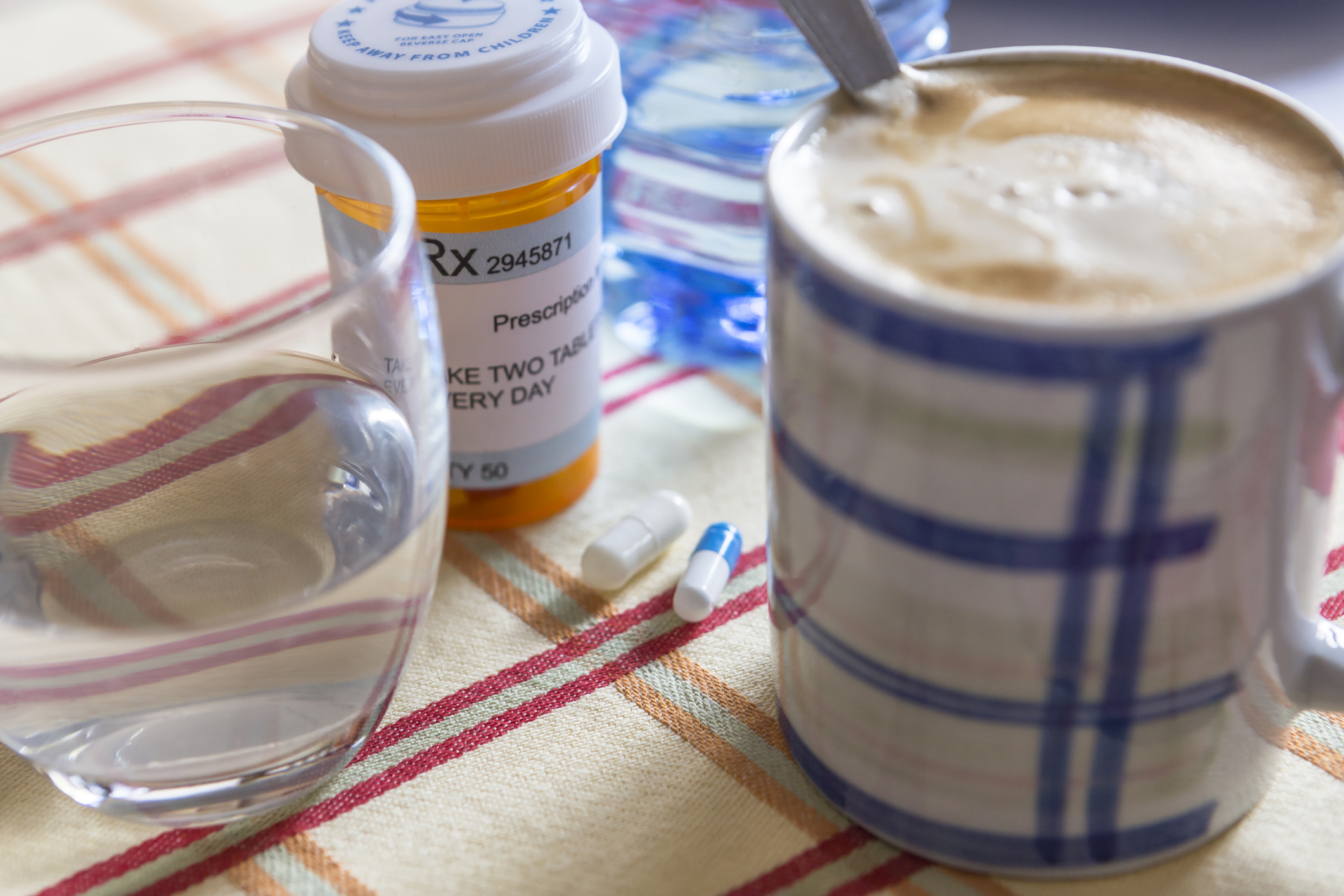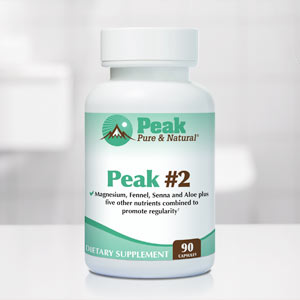Get Easy Health Digest™ in your inbox and don’t miss a thing when you subscribe today. Plus, get the free bonus report, Mother Nature’s Tips, Tricks and Remedies for Cholesterol, Blood Pressure & Blood Sugar as my way of saying welcome to the community!
12 medications you shouldn’t take with coffee

A whopping 3 out of every 4 Americans ages 20 and older drink coffee at least occasionally, and roughly half drink it daily.
Considering coffee’s growing list of health benefits, that’s not a bad thing. From lowering stroke risk to reducing some cancers and promoting healthy aging, there’s a lot going for it.
However, there is a drawback to be aware of: Coffee consumption could interact with your medication.
Coffee contains caffeine and other substances that can interfere with how your body absorbs or reacts to certain medications. The caffeine in coffee may also increase the risk of side effects like restlessness or heart palpitations.
Here are 12 medications that you should think twice about combining with coffee…
Anticoagulants
Also known as blood thinners, anticoagulants such as warfarin and heparin prevent or reduce blood clotting. People at high risk of blood clots usually take an anticoagulant daily.
According to research, caffeine increases the concentration of blood-thinning medication in the bloodstream, enhancing its effects. That may put people who consume caffeine regularly while taking anticoagulants at risk of bleeding.
Antidepressants
Antidepressant medication treats depression, anxiety and other mental health conditions. Drinking large amounts of coffee while taking antidepressants may reduce the amount of medication your body absorbs, lowering its effectiveness.
Antidepressants altered by caffeine include:
- Luvox (fluvoxamine)
- Lexapro (escitalopram)
- Amitril (amitriptyline)
- Tofranil (imipramine)
In addition, taking Luvox with coffee may raise the risk of caffeine-related side effects like heart palpitations and sleep problems.
Blood pressure medication
High blood pressure is a common chronic health condition that, left untreated, can lead to heart disease and stroke. Blood pressure medications Inderal (propranolol) and Lopressor (metoprolol) lower your heart rate and reduce the strain on the heart.
If you drink coffee at the same time you take blood pressure medication, it could result in your body absorbing less of the drug.
Bronchodilators
Asthma affects the lungs and airways, resulting in trouble breathing, chronic cough and wheezing. Bronchodilators are asthma drugs that relax the airways and make breathing easier.
Side effects of bronchodilators include restlessness, racing heart, headache and irritability. Caffeine can worsen these side effects and reduce the amount of medication absorbed by your airways.
Cholinesterase inhibitors
Cholinesterase inhibitors like Aricept (donepezil) are used to treat symptoms of Alzheimer’s disease and dementia. They work directly on the brain and help protect the neurotransmitter acetylcholine.
The caffeine in coffee has a serious impact on these medications, lessening their effectiveness and decreasing how much of the medication reaches the brain.
Cold and allergy medications
If you regularly take medication for allergies or cold symptoms, check to see if they contain pseudoephedrine. This nervous system stimulant has many of the same effects as coffee, so taking them together may increase the risk of side effects such as restlessness, heart palpitations and trouble sleeping.
You should not drink coffee when taking Sudafed (pseudoephedrine) or Allegra (fexofenadine).
Diabetes medication
Research indicates that caffeine may worsen diabetes symptoms and interfere with glucose control. Drinking a lot of coffee could raise your levels of blood sugar and insulin and make it more difficult to manage your diabetes.
Antipsychotics
Antipsychotics treat serious mental health conditions like major depressive disorder and schizophrenia. As is the case with antidepressants, taking antipsychotics with coffee could cause the body to absorb less of the drug.
Examples of antipsychotics affected by coffee include:
- Abilify (aripiprazole)
- Compro (prochlorperazine)
- Haldol (haloperidol)
- Orap (pimozide)
Methotrexate
Methotrexate is an immunosuppressing drug often used in chemotherapy, a type of cancer treatment. Drinking coffee while taking it could cause higher levels of the medication in the bloodstream, since caffeine affects how the body absorbs the drug.
Osteoporosis medication
In osteoporosis, bones lose mineral density and mass and become thin and fragile. Medications like Boniva (ibandronate) and Actonel (risedronate) strengthen osteoporotic bones and reduce fracture risk.
Drinking coffee with osteoporosis drugs affects their absorption and may make them less effective. Most healthcare providers recommend taking them only with water.
Quinolone antibiotics
Quinolone antibiotics like Cipro (ciprofloxacin) treat bacterial infections. When mixed with caffeine, quinolones can increase the risk of side effects like heart palpitations and restlessness.
Thyroid medications
Thyroid medications regulate the amount of thyroid hormone in the body. They are often prescribed to people with hypothyroidism (low thyroid), whose thyroid glands do not produce enough thyroid hormone.
Drinking coffee with medications like Synthroid (levothyroxine) can reduce the medication’s effectiveness. In fact, caffeine cuts the body’s ability to absorb thyroid medication in half.
Should you avoid coffee altogether?
If you take any of these medications and want to be completely safe, you should probably eliminate coffee and any other caffeinated beverages.
But if you can’t go without your daily coffee (or caffeine) fix, talk to your doctor or pharmacist for their advice. It’s possible you only need to avoid taking your medication at a different time of the day than when you prefer your coffee.
Editor’s note: What do you really know about stroke? The truth is, only 10% of stroke survivors recover almost completely, and all doctors can offer is what to do after a stroke occurs. That’s unacceptable considering 80% of strokes are preventable! Click here to discover how to escape The Stroke Syndrome: 5 Signs it’s Stalking You — Plus the Hidden Causes and Preventive Measures You’ve Never Heard About!
Sources:
12 Medications That Don’t Mix Well With Coffee — Verywell Health
Coffee Drinking Is Widespread in the United States, but Usual Intake Varies by Key Demographic and Lifestyle Factors — The Journal of Nutrition















